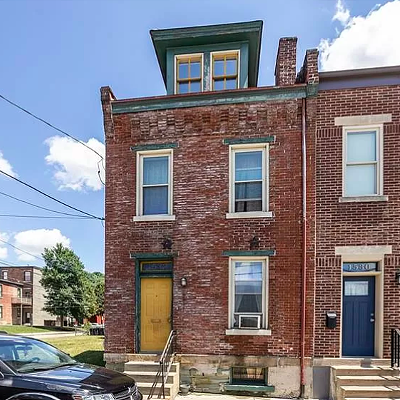On one level, you can't blame the Fraternal Order of Police for wanting to end the city's residency requirement: Like most of us, police want to choose where they live, and where their kids go to school. But they seem to be in such a hurry to leave town, they're running yellow lights to do it.
Police are taking advantage of legislation, Senate Bill 1572, signed by Gov. Tom Corbett last October. The bill changed a half-century-old state law requiring Pittsburgh police to live in the city. The law now says only that the city "may" require residency, and the FOP is challenging that requirement before a three-member panel of arbitrators. Such panels often decide contract disputes, but several legislators — including some who voted for the law — say they never intended that to happen here.
"My belief is that we were giving city elected officials the ability to determine for themselves whether they wanted their officers to live in the city," says state Sen. Jay Costa (D-Forest Hills), the Democrats' Senate minority leader. "I don't think our intent was to have arbitrators make that decision. And I don't think we've done that."
"I wanted to get a consensus of what the mayor and council thought, and the residents too," agrees state Sen. Wayne Fontana, who represents the city's South Hills.
Looking back, though, it seems ominous that SB1572 was sponsored entirely by Republicans who don't live in the city either. Lifting the requirements was a hobbyhorse for that noted champion of law and order, convicted former state Sen. Jane Orie (R-SCI Muncy). Last year's effort was similarly sponsored by Republicans including Randy Vulakovich of the North Hills, and John Rafferty, who represents Philadelphia suburbs. (Not surprisingly, Vulakovich is a former police officer from Shaler; Rafferty is a former deputy attorney general who has long been tight with police.)
It's also strange how little public discussion SB1572 got during the five months it took to become law. There were, for example, no public hearings.
"We didn't try too hard to find out what council or the mayor thought," acknowledges Fontana — because as he saw it, the bill allowed city officials to fight it out among themselves. "In some cases, it's best to let local officials make these decisions," he says.
The measure passed the Senate with only one Democrat, Mon Valley's Jim Brewster, voting "no." But in the House, Democrats began having doubts: Could union arbitration help police escape not just the residency requirement, but the need to debate it in public?
"Our staff thought there was too much ambiguity in the bill as written," says state Rep. Dan Frankel.
On Oct. 16, Frankel and other Dems sought to amend the bill, to make it clear residency should not be up for arbitration. But that effort failed, and the bill passed with unanimous support from Republicans. Only two Pittsburgh Democrats, Jake Wheatley and Joe Preston, voted yes.
That won't be the last word. Pittsburgh City Council wants to hold a public referendum this November asking voters whether a residency requirement should be inserted into the city's charter.
Costa and Fontana say such a process is more like what they had in mind from the outset. Arbitration rulings have trumped city charters elsewhere, but if arbitrators do side with the FOP (a ruling is due later this year), the city could seek to overturn the decision in court. "I think the city would have grounds for a challenge" based on the legislature's intent, says Costa.
If police do win the fight to move outside the city, they may find they've made it harder to put a sleeper-hold on city politicians in the future. Several political observers have told me that overturning residency may be like zapping yourself with your own Taser: a use of juice that ends up paralyzing you. Local officials may feel less beholden to a union whose members vote somewhere else, and voters may feel less than sympathetic to a union that runs roughshod over a public referendum.
As police should know better than anyone, the interstates leading out of town have speed limits too. Ignoring them can be dangerous ... even if you have state officials willing to fix your ticket.














